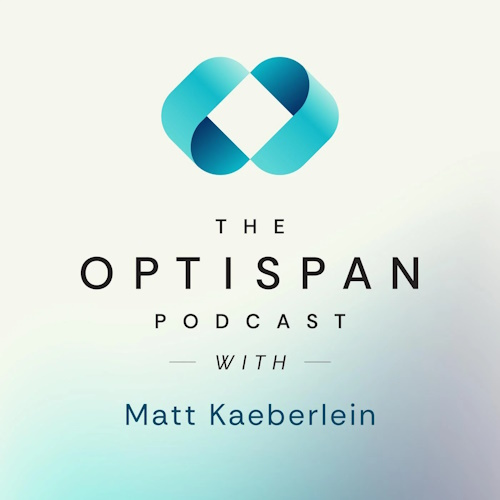This Simple Test Can Reveal Your Risk Of Heart Disease
Matt Kaeberlein discusses his Cleerly heart scan results with Dr. Kevin White
In this episode of the Optispan podcast, Dr. Matt Kaeberlein sits down with Dr. Kevin White to review the results of their Cleerly CCTA scans—a new AI-powered coronary imaging tool. They explore how this non-invasive test detects heart disease earlier than traditional methods and discuss the implications for longevity-focused healthcare.
Key Points:
Cleerly’s CCTA scan uses AI to differentiate soft and calcified heart plaque, offering a powerful early-warning system for cardiovascular risk. This episode emphasizes how personalized data can guide both lifestyle changes and medical decisions for long-term heart health.
- What is Cleerly CCTA? AI Meets Coronary Imaging: Cleerly adds advanced AI analysis to CT angiograms, quantifying soft and calcified plaque and giving a precise visualization of heart disease risk—far beyond what calcium scans or stress tests provide.
- Why It Matters: Heart disease often strikes without warning, even in seemingly healthy individuals. Cleerly scans can reveal hidden plaque and prompt intervention before a major cardiac event occurs.
- Soft vs. Calcified Plaque: Soft plaque—especially low-density types—is more dangerous than calcified plaque, as it’s more likely to rupture and trigger heart attacks. Fortunately, soft plaque is also more responsive to lifestyle and medical intervention.
- The Scan Experience: The scan is quick and painless, involving contrast dye and a short stay under a CT machine. Patients may need a beta-blocker to slow heart rate, and minor radiation exposure is involved—but newer machines keep it minimal.
- Understanding the Results: The report includes detailed plaque volumes, percent stenosis (blockage), and “CAD-RADS” staging. Dr. Kaeberlein's scan showed minimal disease, with 5–11% narrowing in a few arteries, mostly due to soft plaque.
- From Data to Action: Depending on plaque type and severity, follow-ups may include statins, PCSK9 inhibitors, or focused lifestyle changes. Re-scanning in 2–4 years can track progress, making this a dynamic tool for long-term heart health.
Visit website: https://www.youtube.com/watch?v=Dmfyp3OrlA8
See alsoDetails last updated 01-May-2025
Mentioned in this Resource
Kevin White
Kevin White, with over 20 years in Trauma/ER medicine, is the owner of Prime Health Associates



